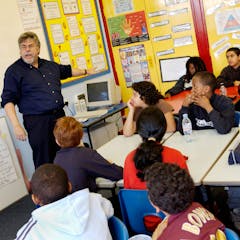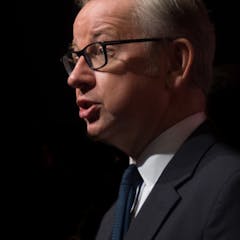
Articles on National Curriculum
Displaying 1 - 20 of 68 articles

Two education researchers argue it is important we don’t let ‘curriculum wars’ distract us from the other issues hurting Australian schools and education.

Over 80% of secondary schools are academies, which don’t have to teach the national curriculum.

The number of content descriptions of what teachers should teach and what students should learn has been cut by 21%. In primary school geography, 50% of these descriptions have gone or been reduced.

More of the curriculum is devoted to climate change, but it’s still not presented holistically. Teachers also need more training and resources to help them prepare students for a changing climate.

Our research found that focused grammar teaching didn’t improve children’s writing.

By pushing the timing of approval back to April, likely just before the election, the government has put itself in a position to use the curriculum to score political points.

Grammatical nous has been found to give students a broader understanding of their own language and a key to learning others. The problem is, teachers aren’t being equipped to teach it.

Public debates about the Australian Curriculum are arguably a sign of democracy at work. Suggesting that some things, such as Anzac Day, are sacred and beyond critical inquiry is not.

The education sector has to constantly re-learn lessons about using digital technologies in teaching.

The former journalist raised eyebrows recently when he lapsed into Nonstandard English which is frowned upon in his National Curriculum.

While shifting cyber safety education beyond privacy is a step in the right direction, teachers already have to contend with an overcrowded curriculum.

The role of general capabilities in a subject-based curriculum has been a recurring theme in Australian curriculum history.

The recently released Gonski 2.0 report focuses on overhauling core aspects of curriculum and reporting, and proposes a move away from the industrial model of education towards individualisation.

Despite improvements to their content over time, secondary school history textbooks still imply that ‘real’ Australians are white.

Teaching philosophy for just one hour a week can improve children’s progress in writing, maths and reading.

Action on Sugar doesn’t think much of David Cameron’s childhood obesity strategy, but will May do any better?

The Government changed the curriculum in 2014 so that all school children would be taught coding, but two years on this is far from reality.

Last week the states agreed to the implementation of changes to the national school curriculum brought about by the National Curriculum Review undertaken last year.

Religious exemptions to the anti-discrimination act should end to ensure fear mongering and misinformation are not present in our schools.

Claims by a group of eminent British historians that Eurohistory is taking over the school curriculum are unfounded.





